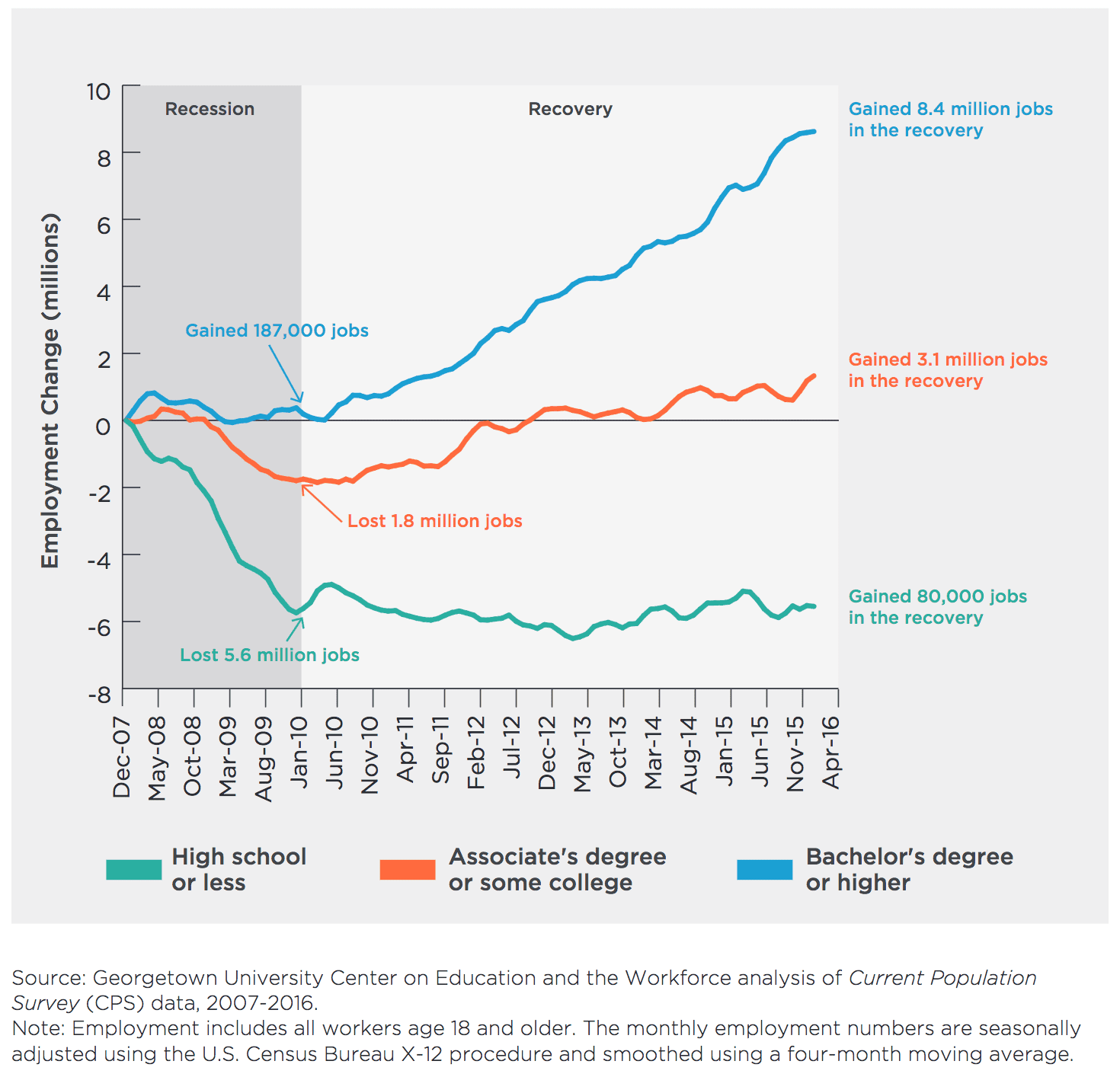I have been working for Timesheets since the end of the recession and, over the years, I’ve had the opportunity to witness the country’s job growth from an unsuspecting perspective – at least we here at Timesheets weren’t expecting it.
Sometime around 2011 we started seeing more license upgrades, i.e. our customers were adding employees to their service. Every company needs to track time and as a company increases its workforce it also increases its need for time tracking. While our company always managed to gain new customers, even at the economy’s lowest point, we had never seen much activity with license upgrades until early 2011.
At first we were stunned but it soon became apparent that the upgrades were correlating to job growth. This observation was pretty interesting to us. It was like evidence that the economy was indeed recovering. People were hiring and when they hired, they added those new employees to their time tracking service.
One thing we hadn’t noticed in own data, however, was that the employees which were being added to our service were skilled workers with some higher education and not unskilled workers. The job gains during the economic recovery were almost exclusively going to workers who had some amount of higher education.
The research by Georgetown University, Center on Education and the Workforce, highlights the impact the recession had on skilled and unskilled workers.
- Unskilled – Workers who had never gone to college at all are basically still in the recession. They lost 5.6 million jobs and have experienced nearly no recovery at all. There have only been 80,000 new jobs for unskilled workers or 1% of the total new jobs.
- Graduate Degree – Workers with graduate degrees barely even felt the recession in terms of job loss and they continued to see more job growth into the recovery with a total of 3.8 million jobs gained.
- Bachelor’s Degree – Workers with a bachelor’s degree struggled through the recession until mid 2011 but have since picked up 4.6 million jobs.
- Some college – Workers with some college or an associate’s degree took a big hit just like the unskilled workers did but have had a better come back with 3.1 million new jobs.
I wonder, though, are all those 5.6 million unskilled workers that lost their jobs still unemployed or did they go back to college and snatch up some of the educated jobs, or have they become part of the gig-economy (essentially self-employed freelancers)?
Economic downturns do typically drive college enrollment so it’s likely that a big chunk of those unemployed and unskilled workers enrolled in classes. There was a sizable increase in college enrollment starting in 2008 and peaking in 2010. Enrollments increased by 2.6 million during 2008, 2009, and 2010 but even that number is far below the number of jobs lost and not recovered by unskilled workers.
The reality is, a big chunk of the US workforce is still sitting in a recession that the rest of us thought was over a long time ago. As the author of the study said clearly, “those who benefit from economic progress do not tend to be the same people who are hurt by it.”





